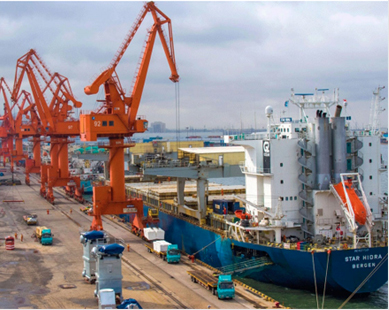 No one in their wildest dreams imagined at the end of 2019, what the onrushing train of 2020 would bring. 2020 was always touted to be known as one of the important years with some great historic changes expected to take place all across the globe but with the natural disasters, the pandemic, the worldwide lockdown, massive recession; the Geospatial World called this year as the “ worst year ever seen”.
No one in their wildest dreams imagined at the end of 2019, what the onrushing train of 2020 would bring. 2020 was always touted to be known as one of the important years with some great historic changes expected to take place all across the globe but with the natural disasters, the pandemic, the worldwide lockdown, massive recession; the Geospatial World called this year as the “ worst year ever seen”.
The big hope was that 2020 would be THE year for profitability and sustainability. But in a matter of weeks, it had to be put on a back-burner as survival became the top priority. A United Nations progress report published in December 2020 indicated that none of the international Sustainable Development Goals for 2020 were achieved. The entire year of 2020 passed by the COVID- 19 pandemic which has led to global social and economic disruption, mass cancellations and postponements of events, worldwide lockdowns and the largest economic recession since the World War 2.

But before we bid goodbye to this unprecedented year, it is essential to make sense of the developments which tested the world and its people. We started the year worrying about the possibility of World War III and ended up facing bigger troubles. A look back on the year that passed by like a gush of winds, below is the list of all the major events that we’ve endured this year.
AUSTRALIA BUSHFIRES AND WESTCOAST WILDFIRES
It began in September 2019 and continued to blaze in to the New Year as well. It was also called the “Black Summer” as it killed as many as 500 million animals, burned 47 million acres, displaced thousands of people and killed at least 34 people. The Royal Australian Navy (RAN) and the Royal Australian Air Force (RAAF) were deployed to New South Wales to assist mass evacuation efforts.
Deadly wildfires erupted from California to Washington State, burning millions of acres and displacing hundreds of thousands of people since mid-August.
HARRY AND MEGHAN QUIT (MEGXIT)
On 8th January 2020, Prince Harry, Duke of Sussex, and Meghan, Duchess of Sussex, made an announcement on their social media handle of their intention to “step back as ‘senior’ members of the Royal Family”. Megxit came to signify the break by the couple from the British royal family and its former protocol and their plans for independence under their new brand, then tentatively named Sussex Royal.
COVID 19 PANDEMIC
As mentioned earlier this year has to be credited to the virus as it has ruled the roost and shaken up the entire world. It is an on-going pandemic of coronavirus disease 2019 (COVID-19) caused by severe acute respiratory syndrome coronavirus 2. The virus was first identified in December 2019 in Wuhan, China. The World Health Organization declared the outbreak a Public Health Emergency of International Concern in January 2020 and a pandemic in March 2020.
As of 27 December 2020, more than 80.3 million cases have been confirmed, with more than 1.75 million deaths attributed to COVID-19. The world woke up to a “new normal” with various preventive measures including social distancing, wearing face masks in public, ventilation and air-filtering, hand washing, covering one’s mouth when sneezing or coughing, disinfecting surfaces, and monitoring and self-isolation for people exposed or symptomatic. The Coronavirus disease has impacted every segment of life like commercial establishment, education, economy, religion, transport, tourism, employment, entertainment, food security, sports, etc. The outbreak has become a major destabilizing threat to the global economy. Economist intelligence unit has forecast that markets will remain volatile until a clearer image emerges on the potential outcomes.
IMPEACHMENT OF PRESIDENT DONALD TRUMP
Donald Trump became the third President in American history to be impeached on with a majority of Representatives voting in favour of the two articles of impeachment drawn up by House Democrats. The former President was accused of abuse of power and obstruction of Congress, both connected with the Ukraine scandal. He was ultimately acquitted by the Senate on February 5.
BREXIT
After years of negotiations and drama, Brexit finally happened on January 31. The United Kingdom officially left the European Union but braced itself for yet more negotiations in the years to come. To date, the UK is the first and only country formally to leave the EU, after 47 years of membership within the bloc, after having first joined its predecessor, the European Communities (EC), on 1 January 1973.
VIOLENCE IN DELHI OVER CITIZENSHIP AMENDMENT ACT
India’s Citizenship Amendment Act (CAA), which was passed in late 2019, would allow people of certain religions from neighboring countries to become Indian citizens. However, Muslims were exempted from this, leading many to protest it for being “anti-Muslim.” Between February 22 and February 27, protests over the CAA led to communal violence in northeast Delhi, wherein mobs attacked Muslim neighbourhoods in a frenzied state. At least 53 people died in the violence.
BEIRUT EXPLOSION
On 4 August 2020, a large amount of ammonium nitrate stored at the port of the city of Beirut, the capital of Lebanon, exploded, causing at least 204 deaths, 6,500 injuries, and US$15 billion in property damage, and leaving an estimated 300,000 people homeless. A cargo of 2,750 tonnes of the substance had been stored in a warehouse without proper safety measures for the past six years, the explosion was preceded by a fire in the same warehouse, but as of November 2020, the exact cause of the detonation is still under investigation.
BLACK LIVES MATTER PROTEST
The police-involved killings of George Floyd, Ahmaud Arbery and Breonna Taylor this year sparked a wave of peaceful — and sometimes violent — demonstrations and riots across the world to demand an end to police brutality and racial injustice. African American George Floyd died on May 25 when a white policeman kneeled on his neck for more than eight minutes. Hundreds of people gathered outside the White House to protest against the police.
46TH PRESIDENT ELECTED IN USA
Joe Biden became the 46th president of the United States on Nov. 7, defeating President Trump with a critical assist from his birth state, Pennsylvania, which delivered the votes to propel him to victory and end one of the most contentious elections in recent memory. Ms. Kamala Harris is the First female, the highest-ranking lady elected official in U.S. history, the first African American and the first Asian American Vice President.
KARACHI AND KERALA PLANE CRASH
In May, a Pakistan International Airlines (PIA) plane carrying 99 people aboard crashed into a densely populated residential area near Jinnah International Airport in Karachi. The crash killed 97 people while two passengers miraculously survived it.
On the 7th August, a repartition flight had crash landed at Calicut International Airport due to heavy rains and ended up skidding off the end of the tabletop runway killing 19 passengers and both pilots.
DEMISE OF POPULAR AND FAMOUS PERSONALITIES
Apart from the millions of people who lost their lives due to Covid-19 and other natural disasters all across the world, 2020 is that year where many known faces breathed their last including Kobe Bryant, Maradonna, SP Balasubraminam, Rishi Kapoor, Chadwick Boseman, Sugunthakumari, Irrfan Khan, Ruth Bader Ginsburg, Pranab Mukherjee, Sushanth Singh Rajput and many more personalities.
2020 has been a roller coaster ride with the above events out of which some remain realities today, but others feel like such a lifetime ago, it’s hard to imagine that we had to deal with them in just the last 12 months. Though the year’s biggest events are mostly a series of depressing news, that doesn’t mean its all doom and gloom. Below is the list of the good part of 2020:
- Nature has completely healed while Human Activity was zero.
- After a dramatic postponement, the highly anticipated SpaceX Crew Dragon launch finally happened on May 30.
- We have all learnt and accepted the new normal thus proving the fact that humans can adapt to any environment.
- In order to curb any further damage due to Covid 19, many Countries have done their best to create a safe and effective vaccine using their own resources.
- Though COVID 19 had primarily harmed senior citizens , there was a 103 year old grandmother who had beat the virus.
- Wild Animals Occupied the Streets when human movement had reduced.
- Parasite became the first foreign film to win at the Oscars.
- Work from home has benefitted companies by saving commuting time, increasing productivity, and creating a better work-life balance.
- Humanity became the need of the hour and that was the best realization of 2020.
2020 has been one of most tiring years that anybody has witnessed in our very comfortable lives. But in the midst of the tragedies there was courage, there was grace, there was sacrifice, there was hope—there were people who faced the worst rising up to be their very best. Few will recall the year just ending with anything close to fondness. But it will surely be recalled with no small measure of pride.
It was a Pleasure Writing Articles For The Light House Every Month And I Take This Opportunity To Congratulate CSS For Its 25th Anniversary.
We’ve had a Great Journey Together and Hoping the Best in The Coming years.
Along With my team at Callidus, I wish you a Happy Anniversary.
All The Best for Many More Years Of Success!!!!.
 The two years at CSS have been challenging yet colorful!
The two years at CSS have been challenging yet colorful!  I was just back from New York after my stint as National Route Development Manager for Tigers Worldwide Logistics (formerly known as Kamino International) when I decided that I wanted to stay back in India and build my career here.
I was just back from New York after my stint as National Route Development Manager for Tigers Worldwide Logistics (formerly known as Kamino International) when I decided that I wanted to stay back in India and build my career here.  Team Projects at CSS started the year 2021 by completing a heat exchanger to DDP Houston. The scope of work awarded was to move the shipment from the manufacturer yard up to the door in Houston, USA. Though the weight and dimensions were smaller compared to the earlier piece, this move also required smooth coordination to ensure safe load out. The cargo was 60 Tons in weight and with 8.80 x 2.36 x 3.23m(lxbxh) as dimensions.
Team Projects at CSS started the year 2021 by completing a heat exchanger to DDP Houston. The scope of work awarded was to move the shipment from the manufacturer yard up to the door in Houston, USA. Though the weight and dimensions were smaller compared to the earlier piece, this move also required smooth coordination to ensure safe load out. The cargo was 60 Tons in weight and with 8.80 x 2.36 x 3.23m(lxbxh) as dimensions.  Abu Dhabi has confirmed the massive discovery of oil which amounts to 22 billion stock tank barrels (STB) of unconventional oil resources, located onshore. Announced in the presence of Sheikh Mohamed bin Zayed Al Nahyan, Crown Prince of Abu Dhabi, the oil discovery exceeds some of Abu Dhabi’s major fields in terms of resources.
Abu Dhabi has confirmed the massive discovery of oil which amounts to 22 billion stock tank barrels (STB) of unconventional oil resources, located onshore. Announced in the presence of Sheikh Mohamed bin Zayed Al Nahyan, Crown Prince of Abu Dhabi, the oil discovery exceeds some of Abu Dhabi’s major fields in terms of resources.  Recently, CSS has been able to provide seamless logistics for an oil project by a UAE-government entity in Abu Dhabi. On the 25th of November 2020, CSS was commissioned to deliver oil field equipment weighing 60 tons in total.
Recently, CSS has been able to provide seamless logistics for an oil project by a UAE-government entity in Abu Dhabi. On the 25th of November 2020, CSS was commissioned to deliver oil field equipment weighing 60 tons in total.  Delivering within the specified timeline was the vital aspect of this project. The CSS team strategically planned every detail of the operations smoothening out any hassle and delays caused by bottlenecks. Planned to perfection, as always CSS exceeded expectations by delivering the cargo to Mussaffah, Abu Dhabi much before the deadline stipulated by the client. The final phase of this project was completed in December 2020.
Delivering within the specified timeline was the vital aspect of this project. The CSS team strategically planned every detail of the operations smoothening out any hassle and delays caused by bottlenecks. Planned to perfection, as always CSS exceeded expectations by delivering the cargo to Mussaffah, Abu Dhabi much before the deadline stipulated by the client. The final phase of this project was completed in December 2020.  Abu Dhabi ports is playing “a vital” role in the global fight against COVID-19
Abu Dhabi ports is playing “a vital” role in the global fight against COVID-19 Air Cargo – In Full Throttle for COVID – 19 Distribution
Air Cargo – In Full Throttle for COVID – 19 Distribution Nine months ago, we touched the “
Nine months ago, we touched the “ Cargo carrier AirBridgeCargo (ABC) by the Volga Dnepr Group, in partnership with UPS, has successfully transported CanSino’s COVID 19 vaccines from Beijing. These vaccines are intended for global clinical trials.
Cargo carrier AirBridgeCargo (ABC) by the Volga Dnepr Group, in partnership with UPS, has successfully transported CanSino’s COVID 19 vaccines from Beijing. These vaccines are intended for global clinical trials. 

 What is the ATA Carnet?
What is the ATA Carnet?
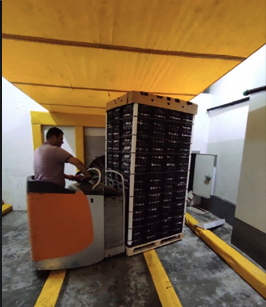
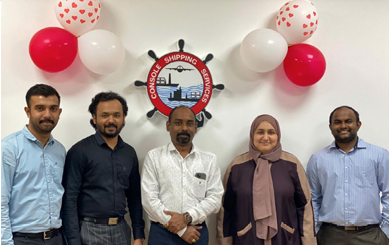
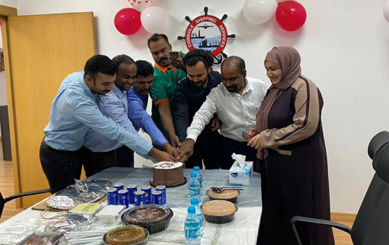 MARCHING FORWARD
MARCHING FORWARD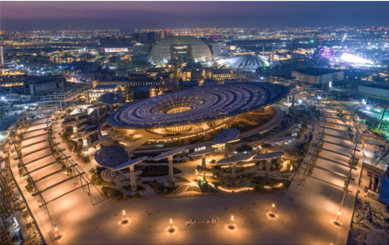 Expo 2020 aims at a global celebration of humanity’s resilience, creativity, culture, and innovation – a tribute to humanity’s resilience in its ability to innovate and achieve the pursuit of optimism in times of adversity. Expo 2020 Dubai is slated to start on October 01, 2021, to build a strong, sustainable future for the global community in a spirit of innovation.
Expo 2020 aims at a global celebration of humanity’s resilience, creativity, culture, and innovation – a tribute to humanity’s resilience in its ability to innovate and achieve the pursuit of optimism in times of adversity. Expo 2020 Dubai is slated to start on October 01, 2021, to build a strong, sustainable future for the global community in a spirit of innovation.